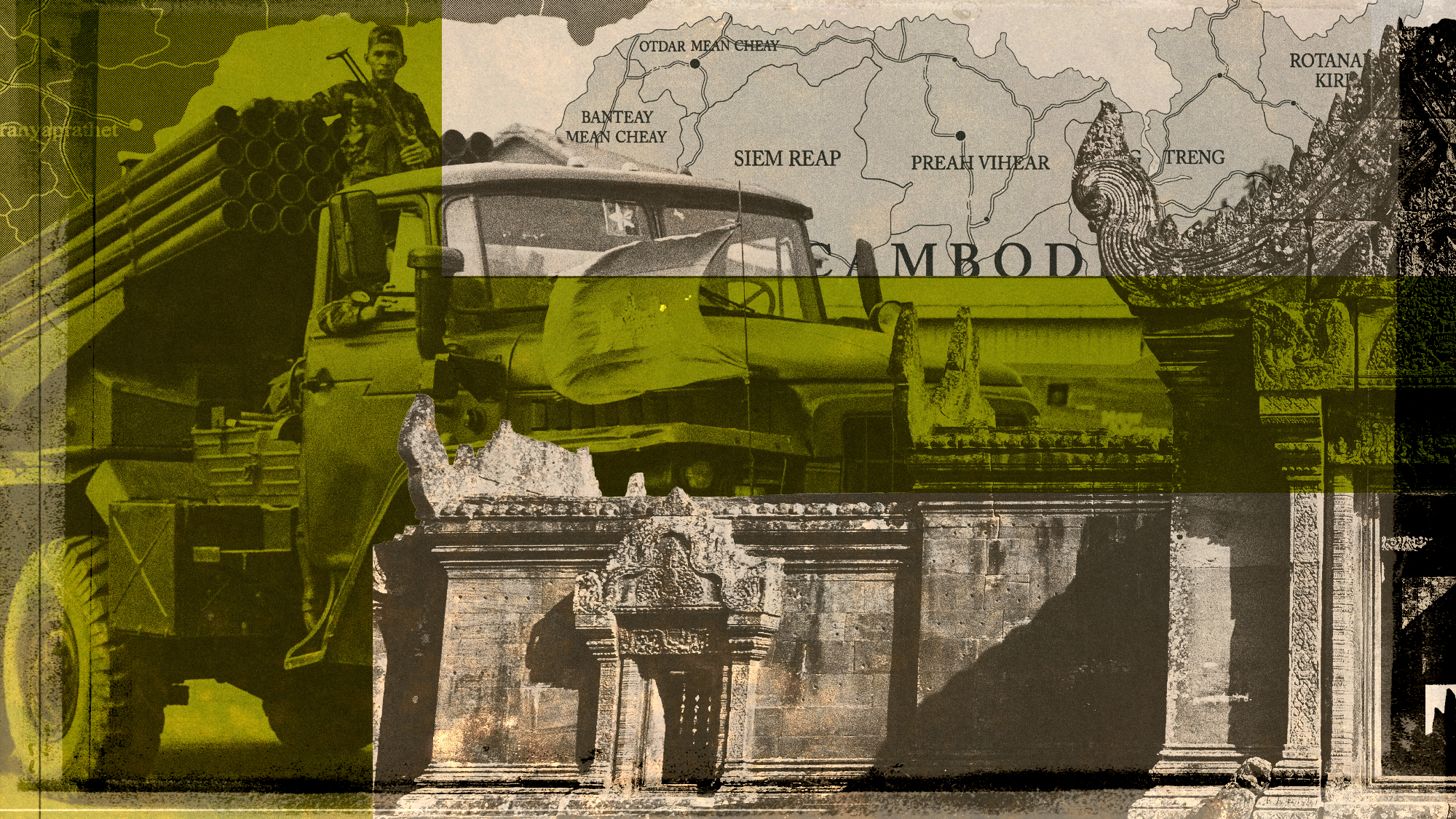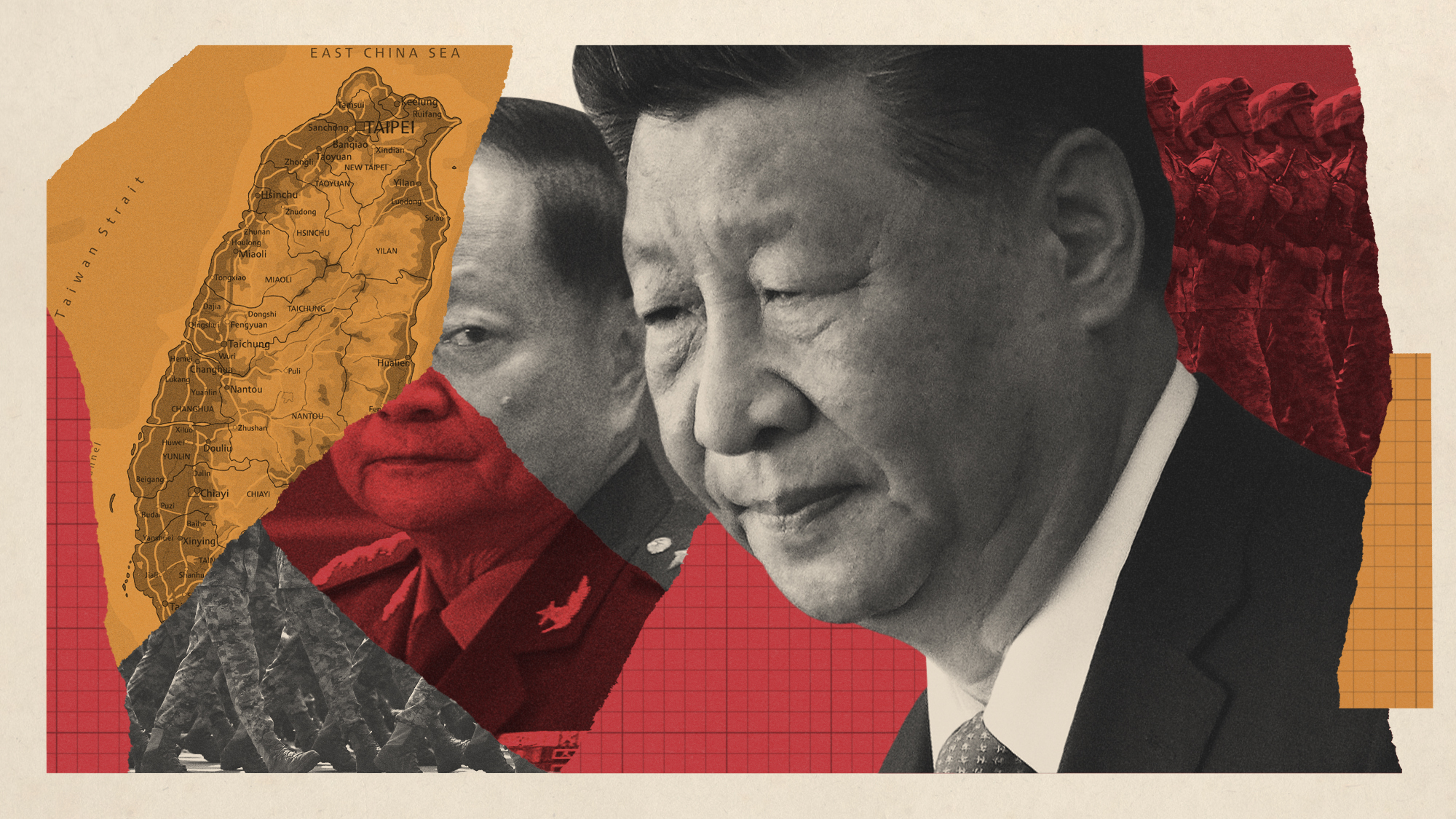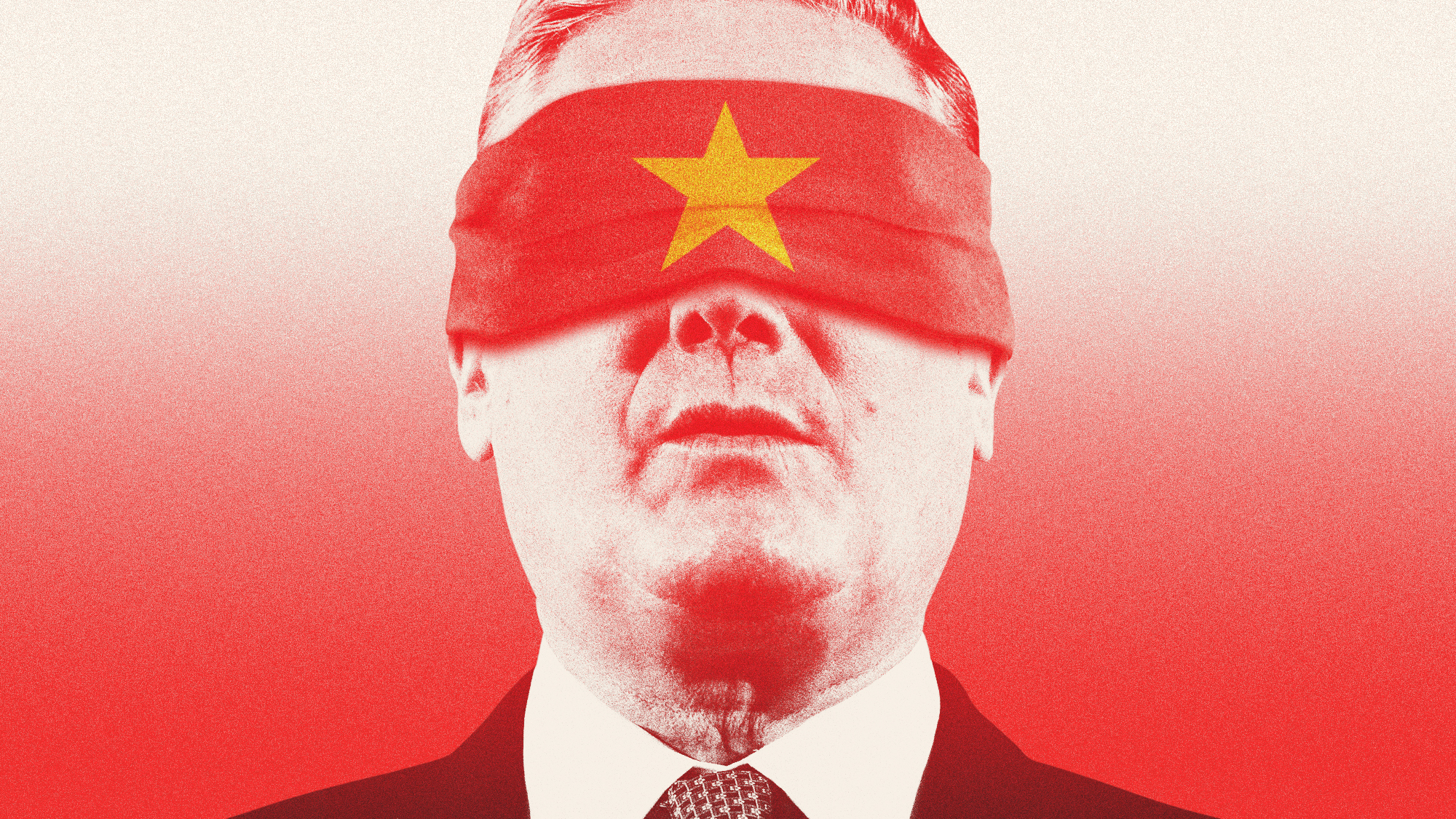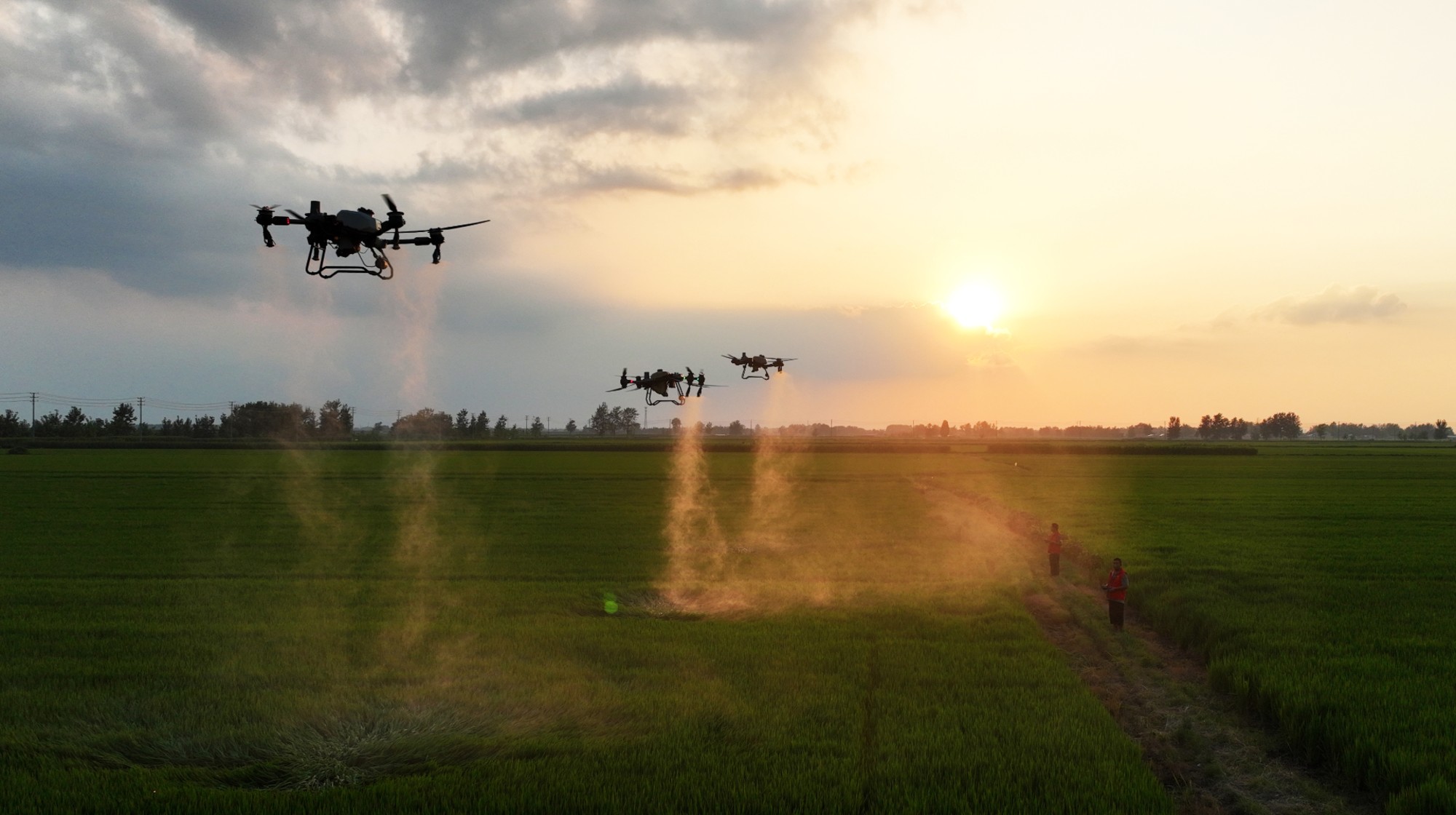Could Thailand and Cambodia really go to war?
Thai leader has warned that recent hostilities over border dispute could lead to all-out conflict

A free daily email with the biggest news stories of the day – and the best features from TheWeek.com
You are now subscribed
Your newsletter sign-up was successful
Thailand's acting prime minister, Phumtham Wechayachai, has warned that clashes between his nation and Cambodia could "move towards war", said the BBC.
In the "bloodiest military confrontation" between the southeast Asian neighbours in more than a decade, the enemies have "traded heavy artillery and rocket fire" across their disputed frontier, said Al Jazeera, killing at least 16 people and displacing tens of thousands of civilians.
What did the commentators say?
The border dispute between Thailand and Cambodia "dates back more than a hundred years", to when French administrators plotted a frontier between what was then Siam and French Indochina, said the BBC. Thailand has never accepted the colonial-era border, but tensions "ramped up" in May after a Cambodian soldier was killed in a skirmish.
The Week
Escape your echo chamber. Get the facts behind the news, plus analysis from multiple perspectives.

Sign up for The Week's Free Newsletters
From our morning news briefing to a weekly Good News Newsletter, get the best of The Week delivered directly to your inbox.
From our morning news briefing to a weekly Good News Newsletter, get the best of The Week delivered directly to your inbox.
Most analysts think that "prolonged conflict is unlikely", said The Telegraph, because "previous exchanges of fire have all dissipated relatively quickly", but recent events have "fanned nationalist sentiment", especially in Thailand. There, the dispute has had significant "political ramifications", notably the suspension of prime minister Paetongtarn Shinawatra and the shaken Thai government "fears being seen as weak".
Pressure on political and military leaders in Thailand is "mounting", said Tita Sanglee, a Thai-based associate fellow at the ISEAS–Yusof Ishak Institute, so "restraint may no longer be viable". It remains to be seen "how far the fighting might go".
The conflict has had "flare-ups at various points" before, said Al Jazeera, but "the real concern this time is the usage of really heavy guns". The Cambodians are using Grad rockets and have accused Thailand of dropping widely banned cluster bombs. "It's really just stepping up and stepping up."
If the "months of simmering tensions" did lead to war, Thailand could draw on a much stronger military, said Reuters. Cambodia's defence budget is $1.3 billion and it has 124,300 active military personnel, while Thailand's budget is $5.73 billion and it can call on more than 360,000 active armed forces personnel.
A free daily email with the biggest news stories of the day – and the best features from TheWeek.com
Cambodia has asked the International Court of Justice to resolve the dispute but this is "unlikely to lead to a resolution" because Thailand doesn't accept the court's jurisdiction, said The Guardian. China's "strong economic ties" with Cambodia and Thailand mean it has leverage over both countries, but it's thought to be "more closely aligned with Cambodia", which could "create unease" in Bangkok.
Thailand has already rejected an offer from Malaysia, which chairs the Association of South East Asian Nations, to facilitate talks, insisting that the issue must be solved bilaterally. So while both nations are leaving the door open for talks in the short term, it "seems unlikely" that the dispute will be resolved "quickly", said Time.
What next?
The United Nations Security Council is to hold a private emergency meeting in New York this afternoon to discuss the conflict. In a letter to the council yesterday, Cambodia urged the body to intervene to "stop Thailand's aggression".
Meanwhile, the Foreign Office has not formally advised against travel to either country outright, but said British nationals should "exercise a high level of vigilance in border areas" and be prepared to "follow the instructions of local authorities".
Chas Newkey-Burden has been part of The Week Digital team for more than a decade and a journalist for 25 years, starting out on the irreverent football weekly 90 Minutes, before moving to lifestyle magazines Loaded and Attitude. He was a columnist for The Big Issue and landed a world exclusive with David Beckham that became the weekly magazine’s bestselling issue. He now writes regularly for The Guardian, The Telegraph, The Independent, Metro, FourFourTwo and the i new site. He is also the author of a number of non-fiction books.
-
 6 of the world’s most accessible destinations
6 of the world’s most accessible destinationsThe Week Recommends Experience all of Berlin, Singapore and Sydney
-
 How the FCC’s ‘equal time’ rule works
How the FCC’s ‘equal time’ rule worksIn the Spotlight The law is at the heart of the Colbert-CBS conflict
-
 What is the endgame in the DHS shutdown?
What is the endgame in the DHS shutdown?Today’s Big Question Democrats want to rein in ICE’s immigration crackdown
-
 The UK expands its Hong Kong visa scheme
The UK expands its Hong Kong visa schemeThe Explainer Around 26,000 additional arrivals expected in the UK as government widens eligibility in response to crackdown on rights in former colony
-
 ‘Hong Kong is stable because it has been muzzled’
‘Hong Kong is stable because it has been muzzled’Instant Opinion Opinion, comment and editorials of the day
-
 What do Xi’s military purges mean for Taiwan?
What do Xi’s military purges mean for Taiwan?Today’s Big Question Analysts say China’s leader is still focused on reunification
-
 What is at stake for Starmer in China?
What is at stake for Starmer in China?Today’s Big Question The British PM will have to ‘play it tough’ to achieve ‘substantive’ outcomes, while China looks to draw Britain away from US influence
-
 ‘It’s good for the animals, their humans — and the veterinarians themselves’
‘It’s good for the animals, their humans — and the veterinarians themselves’Instant Opinion Opinion, comment and editorials of the day
-
 What is China doing in Latin America?
What is China doing in Latin America?Today’s Big Question Beijing offers itself as an alternative to US dominance
-
 Is Keir Starmer being hoodwinked by China?
Is Keir Starmer being hoodwinked by China?Today's Big Question PM’s attempt to separate politics and security from trade and business is ‘naïve’
-
 Looming drone ban has farmers and farm-state Republicans anxious
Looming drone ban has farmers and farm-state Republicans anxiousIN THE SPOTLIGHT As congressional China-hawks work to limit commercial drone sales from Beijing, a growing number of conservative lawmakers are sounding an agricultural alarm